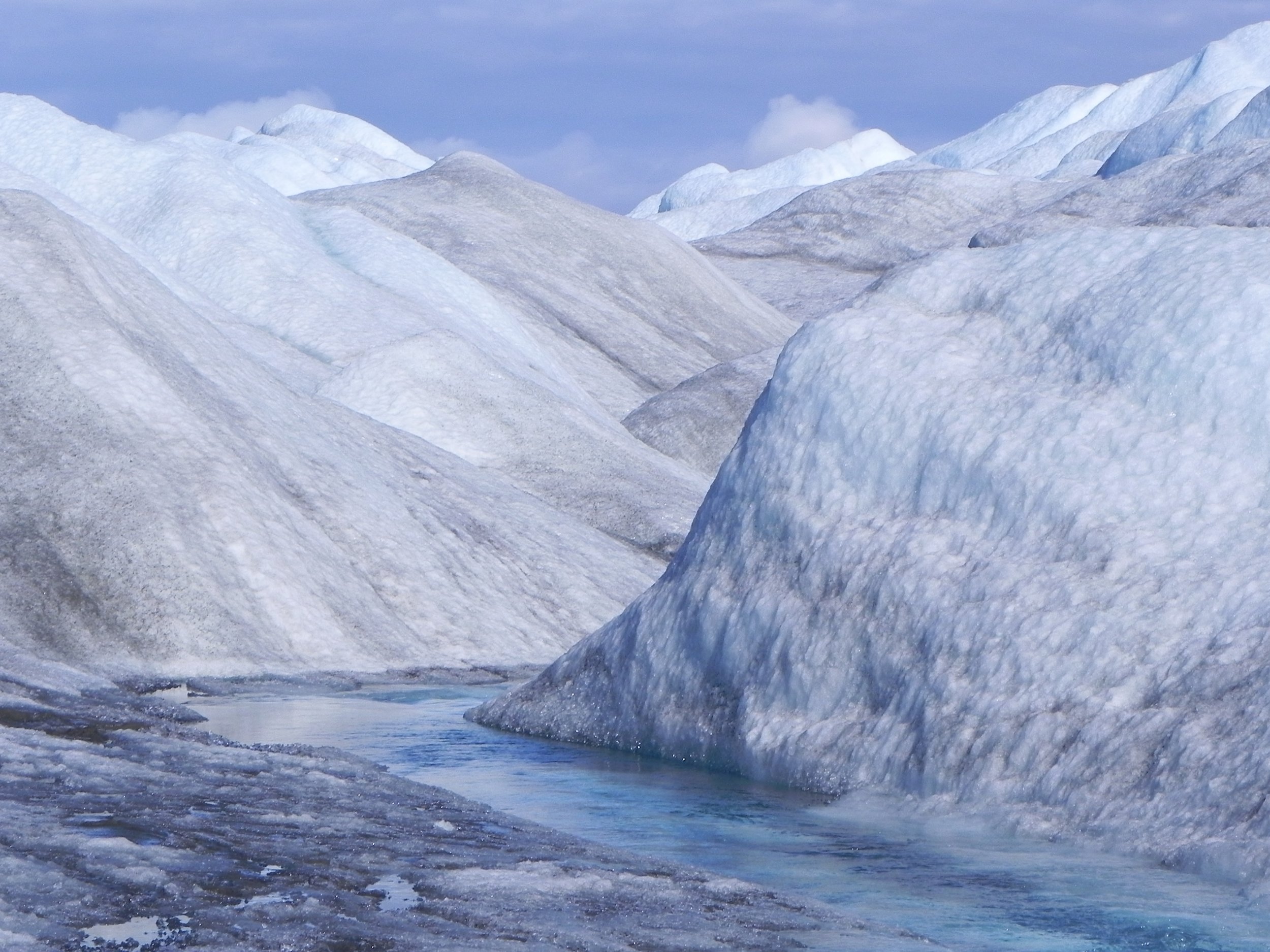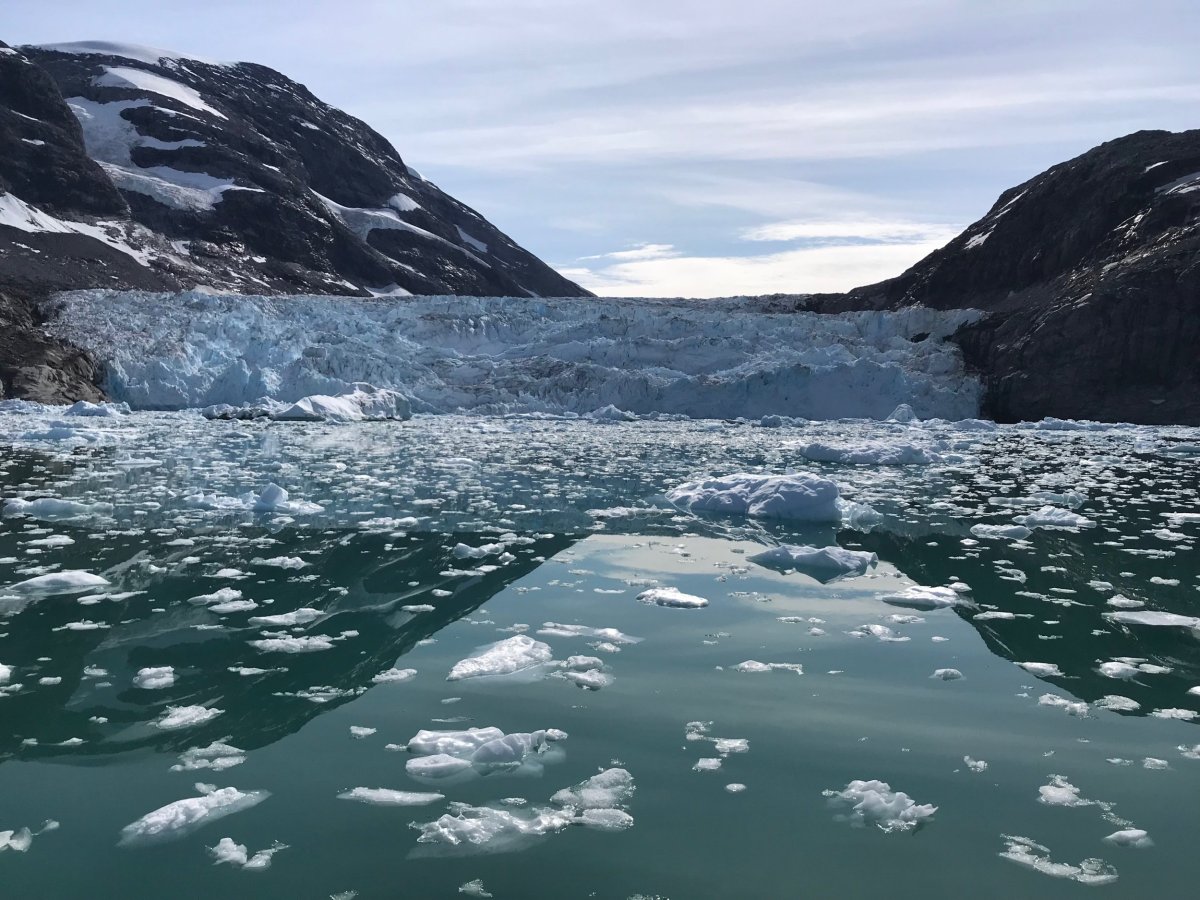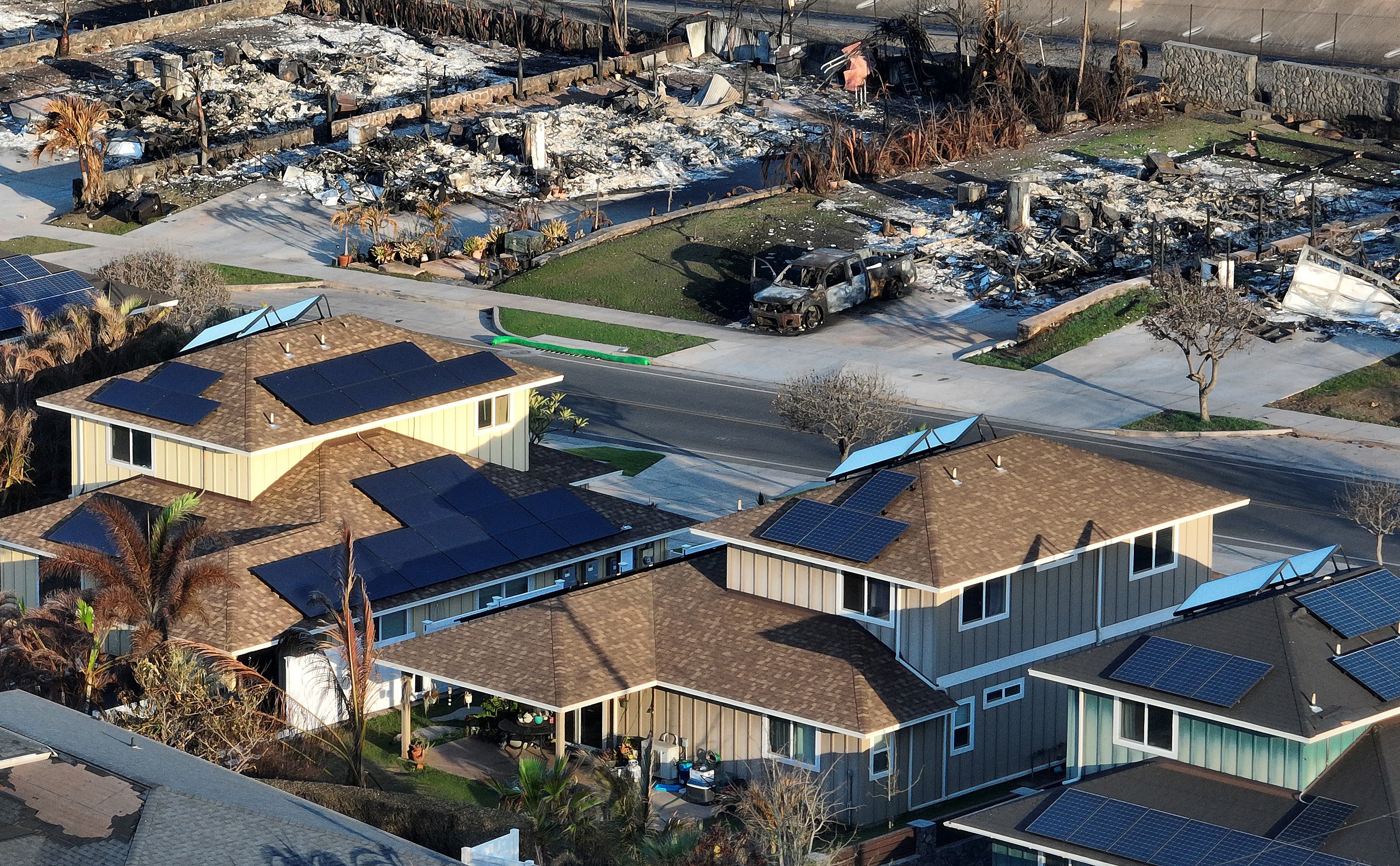
Greenland's ice sheet has melted over the past four decades and contributed to rising global sea levels, scientists have warned. According to the authors of a study published in the journal PNAS, the body of ice—measuring 656,000 square miles, which covers most of Greenland and is three times the size of Texas—grew between 1972 and 1980.
In 1980 it started to shrink. From then until 2018, the rate at which the ice was lost spiked sixfold. This culminated in a loss of approximately 290 gigatons (GT) per year between 2010 to 2018. In turn, this added 13.7 millimeters to sea levels, half of which happened over the past eight years.
The team studied 260 glacial drainage basins and used measurements such as the thickness of the ice, how quickly it moved, and surface elevations between 1972 to 2018 to calculate the mass balance of the Greenland ice sheet and how much fell into the ocean.
Between 1972 and 1980, the ice sheet gained an average of 47 GT of ice per year. Between 1980 and 1990 it lost 51 GT of ice annually, on average. The number rose to 187 GT between 2000 and 2010, and 289 GT in 2010 to 2018. Areas in the northwest, southeast and central west were found to be the worst affected, according to the authors.

Prior to this study, estimates on the changes in mass to the Greenland ice sheet only dated back to 1992.
Dr. Andrew Newton of the School of Earth and Environmental Sciences at The University of Manchester, who did not work on the study, told Newsweek: "This study adds to our knowledge by extending the record on changes in the amount of ice that is contained within the Greenland ice sheet. By better understanding how the ice sheet is evolving in response to climate change, we will be better able to understand the fundamental causes and potential consequences of climate change in the future.
"Whilst a nonlinear rate of change in mass loss has long been suspected, and partly observed, the sixfold increase in mass loss from the 1980s to the present is quite alarming," Newton explained. "An enormous amount of data has gone into this work, and it has also shown that some of the northern glaciers in Greenland have lost more mass than was previously reported. This is concerning because it means that the consequences of warmer temperatures are being felt across all parts of the ice sheet, at different latitudes."
However, Newton also said this type of study carried the risk of errors, in part due to dealing with such large numbers.
"We also need to acknowledge that whilst this extension of the record to nearly 50 years is a significant improvement in our understanding, it is still a relatively short timescale compared to other data sets capturing climate changes, e.g., temperature. Nonetheless, the extended length of the dataset is of great importance for our longer-term understanding of the Greenland ice sheet."
Newton went on to warn: "If the Paris agreement targets are not met, then the Greenland ice sheet will very likely continue to lose mass in the future, impacting global sea level, ocean currents and regional climate."
Earlier this month, Newton and his team published a separate study in Nature Geoscience on the Greenland ice sheet. Using seismic surveys of the seafloor beneath the Greenland ice sheet, they charted its history over the last 2.7 million years.
Uncommon Knowledge
Newsweek is committed to challenging conventional wisdom and finding connections in the search for common ground.
Newsweek is committed to challenging conventional wisdom and finding connections in the search for common ground.
About the writer
Kashmira Gander is Deputy Science Editor at Newsweek. Her interests include health, gender, LGBTQIA+ issues, human rights, subcultures, music, and lifestyle. Her ... Read more
To read how Newsweek uses AI as a newsroom tool, Click here.








